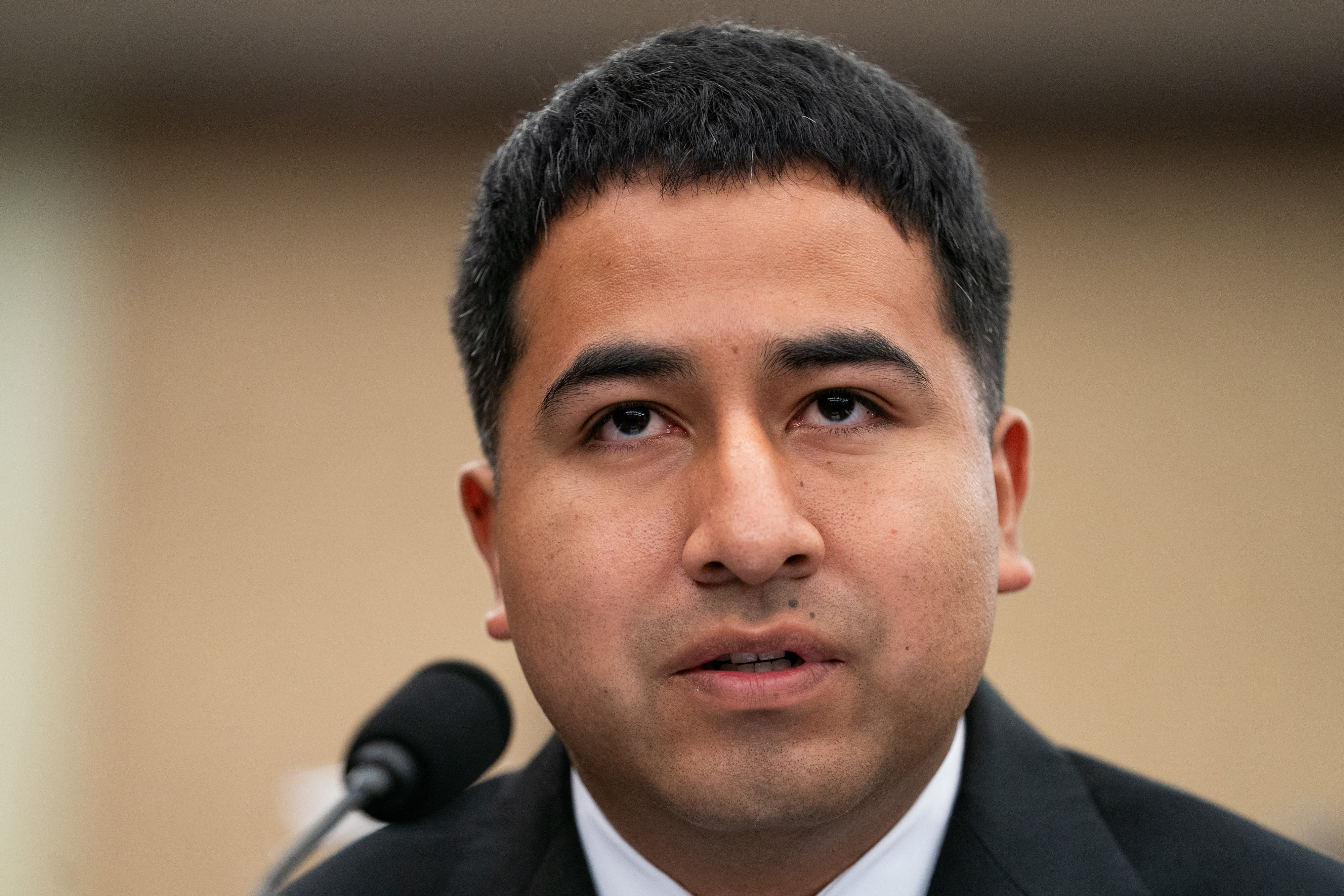The American-backed Iraqi military is facing "intermittent fighting" in Ramadi but is in control of some significant territory once controlled by the Islamic State group in the Euphrates River valley's Anbar province, U.S. defense officials say.
"There's still going to be some tough fighting going ahead," U.S. Air Force Col. Patrick Ryder, a spokesman for U.S. Central Command said Friday.
In Ramadi, the Iraqi army continues to move block by block through the eastern outskirts of the city, removing improvised explosive devices and pushing the Islamic State militants into the rural villages surrounding the provincial capital, defense officials said.
"They are confronting a large number of IEDs and some intermittent fighting," Ryder said in a briefing with reporters.
In support of those Iraqi troops, U.S. aircraft have hit dozens of Islamic State targets in Ramadi during the past week, including fighting positions, tactical vehicles, vehicle-borne IEDs, petroleum trucks, front-end loaders and artillery equipment, defense officials said.
After individual neighborhoods are cleared, the mostly Shiite Iraqi army units are turning over parts of Ramadi's city center to Sunni tribal militias and local police, officials say.
It's been almost a month since the Iraqi government declared victory in Ramadi, which the extremist group controlled for seven months.
To the west, U.S. military officials say the Iraqi army is mostly in control of the roughly 50-mile corridor between the cities of Haditha and Hit, part of the Euphrates Valley that U.S. officials have identified as the next phase for Anbar operations following Ramadi.
Iraqi troops have faced a series of skirmishes during the past week in the area, Ryder said. "What you are seeing there is [Islamic State militants] making a concerted effort to preserve or to take territory but being repulsed in places like Hit and Haditha," he said.
Hundreds of U.S. troops are deployed in al Anbar province, but remain inside secure military facilities like al-Asad Air Base and Taqaddum Air Base, where they are training and advising the Iraqi army and friendly Sunni militias.
The cities of Anbar province are strategically important to the Islamic State group, also known as ISIS or ISIL. Culturally, the region has a long history of supporting Islamic extremists and, geographically, it connects the ISIS Syrian stronghold of Raqqa and key parts of Iraq.
"It is a historic [al-Qaida in Iraq] stronghold and supply line along the Euphrates River valley between Raqqa and Baghdad," Ryder said.
"Once the Iraqis are able to clear the areas inside the lower Anbar corridor, it will become much more difficult for ISIL to infiltrate Baghdad, for example, and limit their ability to conduct terrorism operations like suicide attacks or bombings," he said.
Andrew Tilghman is the executive editor for Military Times. He is a former Military Times Pentagon reporter and served as a Middle East correspondent for the Stars and Stripes. Before covering the military, he worked as a reporter for the Houston Chronicle in Texas, the Albany Times Union in New York and The Associated Press in Milwaukee.





